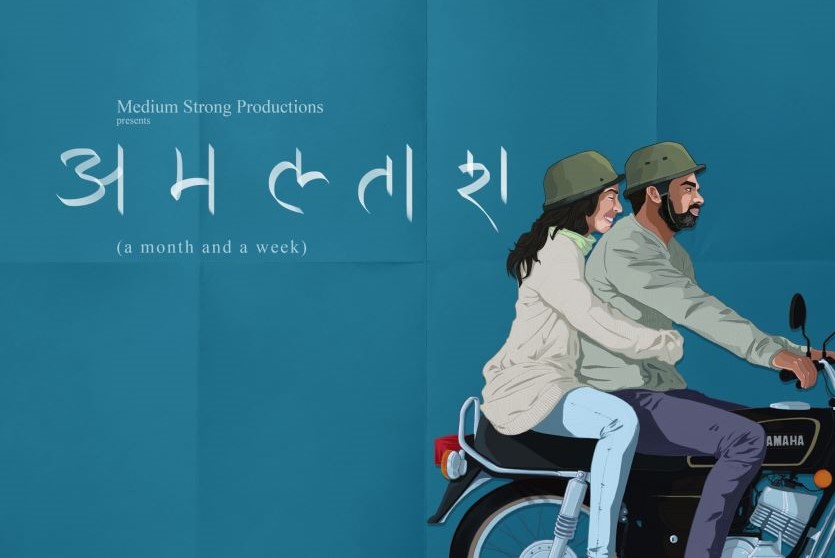Stories about protagonists suffering from a severe illness have been dealt brilliantly in India in films like Anand and Kal Ho Na Ho. Filmmaker Suhas Desale’s Marathi movie Amaltash, which also deals with an important character going through a serious crisis, reaches to that level, although its way different than both movies in terms of the story, narrative and handling.
Amaltash (which translates to ‘a month and a week’) takes place in Pune and it revolves around Rahul (Rahul Deshpande). He lives with his elder sister (Deepti Mate), her husband (Bhushan Mate) and their daughter Dimple (Trisha Kunte). Rahul is a musician and singer who works in a showroom selling and looking after musical instruments. He was once a part of a band with the same people he is working in the shop. The band was dissolved due to unfortunate circumstances.
Rahul once visits one of their customers and well-wishers Mrs Potdar (Pratibha Padhye) for some music instrument related work. Over there, he meets her young granddaughter Keerthi (Pallavi Paranjpe), who stays with her father in Canada and has visited Pune for some time. The two become friendly and she gradually becomes a part of Rahul’s life because of their common passion towards music.
Amaltash isn’t narrated as the synopsis above. The movie is a collage of scenes, sequences and conversations from real life where the viewer is a keen observer. The narrative takes a few minutes for one to get accustomed to. But once that happens, you just can’t leave the film. The observer in you becomes more and more curious and you never realize when you get emotionally attached to the characters and their story. The film is narrated with a lot of tenderness, which you feel every now and then.
Another major positive here is the dialogue. The conversations are straight out of real life but deep and impactful enough to add to the overall effect. Music plays an important role but the film doesn’t present songs in a conventional manner. What you get is live, unplugged and intimate performances taking place inside homes when friends meet.
During all this, the movie also presents Pune in a very different and pleasant manner. It does what Tu Hai Mera Sunday did for Mumbai.
But the biggest triumph of Amaltash is the handling of the pre-climax and climax with, again, such tenderness, that it moves you no ends but at the same (without giving away much) is full of life.
As far as the technical aspects are concerned, the camerawork, background score and editing gel well with the nature of the film and stick to being simple.
The same is the case with the performances as well. Rahul Deshpande was tremendous in Mee Vasantrao (although he shot this film after Amaltash). With Amaltash, he proves that he is as good an actor as a singer. A major effect one feels in the movie is because to his act. Pallavi Paranjpe is thoroughly believable as a Canadian return. She never overdoes with her language and succeeds in speaking without speaking much at times.
Also read: Kennedy review: Anurag Kashyap’s political cum crime drama is impressive
Deepti Mate, Trisha Kunte and the rest of the supporting cast is flawless too. It is interesting to note that all the actors had faced the camera for the first time and they belong to some diverse fields of work.
It is difficult to point out any major flaw or negative point in Amaltash. Perhaps, the pace could have been quickened a bit in a few portions before the climax.
Overall: Amaltash is a thoroughly moving piece of cinema on love, life and music.
Rating: 4.5 out of 5
Director: Suhas Desale
Producers: Darshan Productions and Medium Strong Productions
Writers: Suhas Desale, Mayuresh Wagh and Pallavi Paranjpe
Cast: Rahul Deshpande, Pallavi Paranjpe, Deepti Mate, Trisha Kunte, Pratibha Padhye
